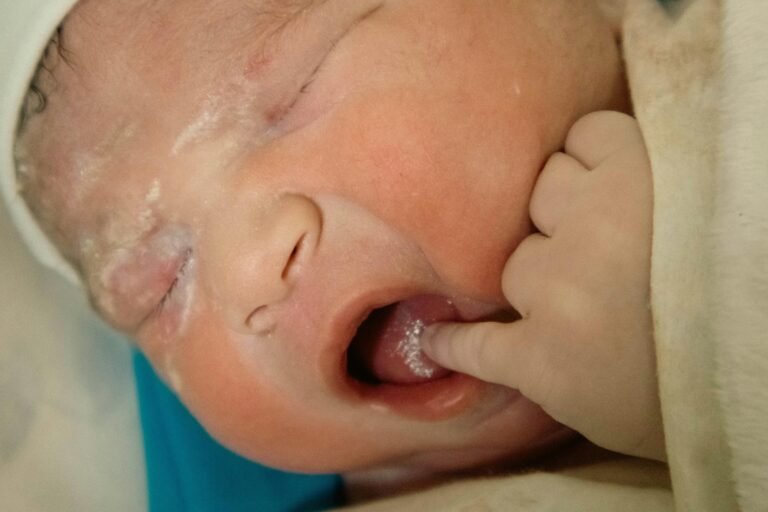If you’re a new parent, the journey of watching your little one grow and hit milestones is nothing short of magical. One of those big moments? Teething! While it’s an exciting sign that your baby’s pearly whites are on the way, it can also bring a fair share of fussiness and sleepless nights. But how do you know when those tiny teeth are really starting to make their debut? Don’t worry—we’ve got you covered. In this blog, we’ll walk you through 10 common signs your baby is starting to teethe, so you can spot the clues early and help your little one through this teething phase with ease and confidence. Let’s dive in!
Table of Contents
- Signs of Increased Drooling and How to Keep Your Baby Comfortable
- Understanding Your Baby’s Chewing Habits and Safe Teething Toys
- What Changes in Sleep Patterns Mean During Teething
- Tips for Soothing Your Little One’s Gums Naturally
- Key Takeaways
Signs of Increased Drooling and How to Keep Your Baby Comfortable
Excessive drooling often signals that your little one’s mouth is gearing up for those first pearly whites. You might notice your baby’s chin and neck getting a bit damp and irritated from the constant flow of saliva. This is perfectly normal, but keeping their skin dry can help prevent redness or rash. Make sure to gently dab their face with a soft cloth throughout the day and consider using a hypoallergenic moisturizer to protect sensitive skin from irritation.
To ease the constant need to chew and soothe sore gums, provide your baby with safe, chilled teething toys or a clean, cool washcloth. The cold sensation can bring comforting relief and reduce inflammation. Remember, keeping a bib handy can help manage the drool and keep their clothes dry. Encourage sucking on teething rings or gently rubbing their gums with a clean finger to give your little one added comfort during this natural stage of development.
Understanding Your Baby’s Chewing Habits and Safe Teething Toys
Babies explore the world through their mouths, which is why chewing becomes a favorite activity as teething approaches. Their gums can feel sore and irritated, prompting them to gnaw on anything within reach to soothe the discomfort. Understanding this natural tendency is key for parents to provide safe, appropriate relief. Parents will notice their little ones may start biting on toys, fingers, or even clothing, not out of mischief but to alleviate pressure on emerging teeth.
Choosing the right teething toys is essential to keep your baby safe and comfortable. Look for:
- Non-toxic materials: Silicone, rubber, or BPA-free plastics that are gentle on delicate gums.
- Easy-to-clean designs: Toys that can be sterilized or washed frequently to maintain hygiene.
- Appropriate size and texture: Avoid choking hazards and opt for toys with different textures to stimulate and soothe.
Providing a chilled teething ring or a soft, textured toy can work wonders in calming your baby’s need to chew while promoting healthy gum massage.
What Changes in Sleep Patterns Mean During Teething
One of the most noticeable shifts parents observe when their little one is starting to teethe is a change in sleeping habits. Teething can cause discomfort and mild pain, which may lead to frequent night awakenings or difficulty settling down. Babies might wake up more often to nurse or require extra cuddles for comfort, disrupting their usual sleep cycle. This is completely normal and is just their body’s way of dealing with the new sensations and irritation coming from those tiny teeth pushing through the gums.
During this phase, parents might notice some of the following nighttime quirks:
- Shorter naps: Your baby might struggle to fall into deep sleep due to gum soreness.
- Restlessness: Tossing and turning or increased fussiness as they try to get comfortable.
- Early morning waking: Crankiness and waking up earlier than usual.
Offering a cool teething toy before bedtime or gently rubbing their gums can sometimes soothe their discomfort and help restore a bit of peace to nighttime routines.
Tips for Soothing Your Little One’s Gums Naturally
When your baby’s gums start to feel tender, nature offers some gentle remedies that can bring immediate relief. One of the simplest is a chilled, damp washcloth—just make sure it’s clean and nubby enough to provide soothing gum massage. Many parents also find success with soft silicone teething toys, which are easy for little hands to grab and durable enough to withstand lots of chewing. These options not only comfort irritated gums but also encourage healthy tooth development.
In addition to physical relief, consider incorporating natural flavors and textures to distract and soothe your baby. A cold, unsweetened teething biscuit or a piece of chilled carrot can work wonders, allowing your baby to nibble safely while calming discomfort. Don’t forget the power of a gentle, soothing gum rub using a clean finger—this simple physical contact can offer great comfort. Remember, every baby is unique, so combining these natural strategies often results in the best calming effect during this important milestone.
Key Takeaways
Teething is a big milestone for both babies and parents—it can be a bit messy, a little noisy, but totally worth it! By recognizing these common signs, you’ll be better prepared to comfort your little one through this phase. Remember, every baby is unique, so patience and plenty of cuddles go a long way. Hopefully, these tips help you feel more confident and less stressed as those tiny teeth start to make their grand debut. Hang in there—you’ve got this!
Related Products
-
Sale!
Versace Eros for Men 3.4 oz Eau de Toilette Spray
Beauty Original price was: $120.00.$61.99Current price is: $61.99. -
Philips Sonicare for Kids Design a Pet Edition, Co…
Kids $29.96 -
ShiQiao Spl To My Son Gifts from Mom Never Forget …
Mom $7.99

